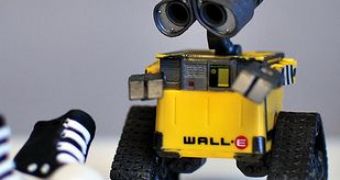The theory of evolution might be obsolete as biologist develops a system that can predict that the next step will be a technical living form that will be able to pass its experience and knowledge to the next generation.
Darwin’s theory of evolution focuses on the best adapted organisms but leaves out the succession of living things during the process.
The developer of this new theory, called the “operator hierarchy” is biologist Gerard Jagers op Akkerhuis, who improved the hierarchy of life by adding a classification of inorganic natural matter.
“Biologists’ take on the hierarchy of life has been pretty careless up to now, [and] this hinders the discipline,” says Gerard Jagers op Akkerhuis.
Jagers identifies the particles that are independently formed from other particles, directly beneath them in the evolution hierarchy, and calls them “operators” .
These operators are arranged in a specific way: the atoms' interactions form molecules, the molecules' interactions surrounded by a membrane form cells, which form a multicellular organism and so on.
The scientist notices that the new entities are formed after a fixed system based on processes that he calls “closures”, because they close a circular process or a circular structure.
Every closure is a step towards a new form of self-organization and a new unique entity – a new operator.
Passing from operator to operator needs a logical step, thus giving the model a predictive value.
After the “memons” - the multicellulars with a neural network at the top of his hierarchy, Jagers's theory is that the following closure will lead to a life form that will not only transfer the genes, but also the knowledge and the collective experience, by so-called “memes”.
These are codes that give the brain's structure, which determines someone's knowledge.
The future life form might not necessarily have a biological evolution, because Jagers believes that even a machine that shows intelligent behavior based on a neural network is respecting the definition of life.
Even if “for the time being such robots still need humans to build them”, this could be the next step in evolution.
On Monday, September 6, Jagers will receive his doctorate from Radboud University Nijmegen.

 14 DAY TRIAL //
14 DAY TRIAL //